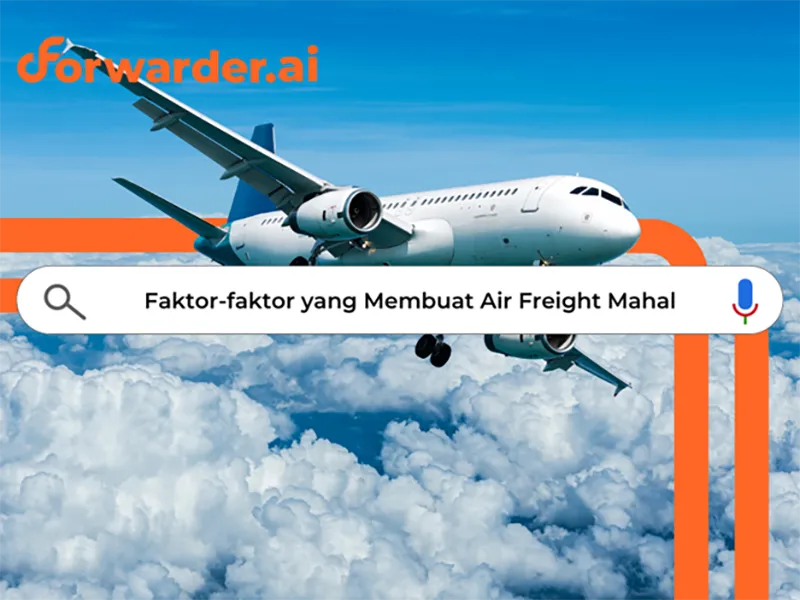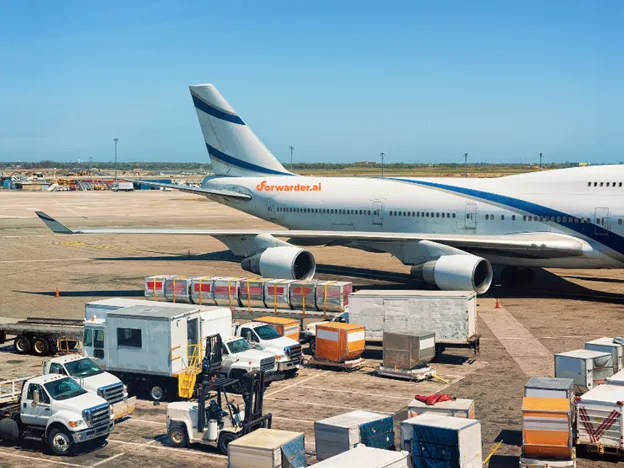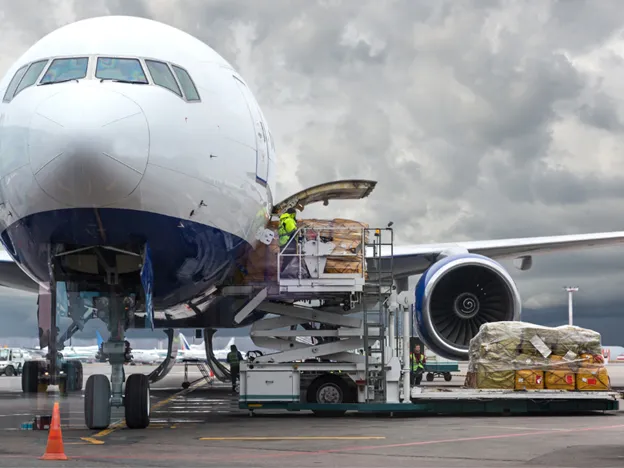
Airway shipping.
Air freight is one of the fastest and most efficient methods of shipping goods, but it is also known to be the most expensive. Why is this? Because there are several factors that make air freight a luxury and expensive service including; delivery speed, infrastructure, operational costs, regulations, and security.
Speed is one of the main reasons why air freight is more expensive than other shipping methods. Aircraft are able to deliver goods to international destinations in hours or days, which is especially useful for time-sensitive items such as pharmaceutical products, the latest electronics, or seasonal fashion. For example, DHL Express offers next-day delivery services to various destinations around the world, which ensures products get to customers quickly and safely. With this speed, companies can meet urgent consumer demands and maintain business operations without time constraints.
In addition, air freight enables urgent delivery of goods such as critical parts for the manufacturing industry or medical devices for hospitals. In emergency situations, the speed of delivery offered by air freight can be a lifesaver. For example, in the COVID-19 pandemic, many countries relied on air freight to get medical supplies quickly. This fast service certainly comes at a premium, but for many businesses, this extra cost is worth the benefits of fast and reliable delivery.
Airport infrastructure and technology used to support air freight services also add to the cost. International airports are equipped with state-of-the-art facilities such as specialized storage warehouses, cooling systems, and real-time tracking technology to ensure goods are delivered safely and efficiently. For example, FedEx has a hub in Memphis, Tennessee, which is one of the largest and most advanced logistics facilities in the world, capable of handling millions of packages every day. This infrastructure enables faster and more accurate handling of goods, albeit at a higher cost.

Cargo delivery at the airport.
The advanced technology used in air freight also contributes to the cost. Real-time tracking systems, for example, allow shippers and receivers to monitor the location and status of their shipments at all times. This not only increases transparency but also allows for quick handling in the event of a problem. In addition, technologies such as automated warehouse management systems and robotics at modern airports help improve operational efficiency, although they require significant initial investment. For example, UPS uses cutting-edge technology at their hub in Louisville, Kentucky, to ensure fast and accurate delivery.
The operational costs of running an air freight service are very high. This includes fuel costs, aircraft maintenance, pilot and crew salaries, and airport handling fees. In addition, additional costs such as airport taxes, aircraft parking fees, and air navigation fees must also be taken into account. For example, UPS operates a large and modern fleet of cargo aircraft, which require significant maintenance and operational costs to maintain the timeliness and reliability of their deliveries. These costs are of course passed on to customers in the form of higher shipping rates.
Efficient operations require careful planning and substantial investment. Cargo aircraft require regular maintenance and engineering to ensure safe and reliable operations. In addition, jet fuel is one of the largest cost components in air freight, the price of which can be highly volatile. Labor costs are also significant, given the high salaries that must be paid to trained pilots, technicians and airport staff. All of these factors make air freight one of the most expensive shipping methods.
The air freight industry is governed by strict international regulations, ranging from security to environmental protection. Compliance with these regulations requires substantial investment in training, auditing and implementation of security systems. Companies like Singapore Airlines Cargo must comply with strict regulations from the International Air Transport Association (IATA) as well as aviation authorities in various destination countries, which adds to their operational costs. These regulations are important to ensure safe and smooth shipments, but they also add to the cost burden for companies.
Read more : What is a Waybill and How Does it Work?
Aviation security regulations, such as X-ray screening and explosives detection, are essential to prevent terrorism threats and ensure flight safety. In addition, increasingly stringent environmental regulations are forcing airlines to reduce emissions and adopt green practices, which often require large investments in technology and operational changes. Compliance with these regulations not only ensures that companies operate legally and safely but also requires substantial resources, ultimately affecting the cost of air freight services.

Illustration of cargo delivery using air freight.
Security is a top priority in air freight. Goods shipped by air must go through rigorous checks to ensure no dangerous or illegal goods are being shipped. This includes X-ray checks, explosive detection, and manual checks by security personnel. For example, companies like Emirates SkyCargo have strict security measures in place to ensure that every shipment is safe and compliant with international regulations. This high security provides extra protection for high-value or sensitive items.
Tight security also ensures supply chain integrity and prevents loss or damage to goods during transit. Advanced security technologies such as CCTV, GPS tracking, and smart sensors are used to monitor shipments in real-time and detect anomalies. These security processes not only add to customer confidence but also operational costs. Companies have to invest in security personnel training and advanced equipment to meet international security standards, which contributes to the high cost of air freight.
Overall, air freight is an expensive option due to various factors affecting operational costs and the infrastructure required to provide a fast and secure service. Nonetheless, this service is essential for shipping time-sensitive goods that require special attention, such as those offered by the world's leading logistics companies.
forwarder.ai offers logistics delivery services to suit your business needs. Customize the cost and the journey you want to use. However, still get maximum service to ensure safe and fast delivery to the destination. With the Instant Quotation feature designed to provide convenience and speed in getting estimated shipping costs. This feature is part of our commitment to provide more efficient and transparent logistics solutions for all customers.
Nikmati voucher hingga 200K untuk pengiriman pertamamu. Langsung berlaku dan otomatis terpotong saat checkout.
Dapatkan Diskon!